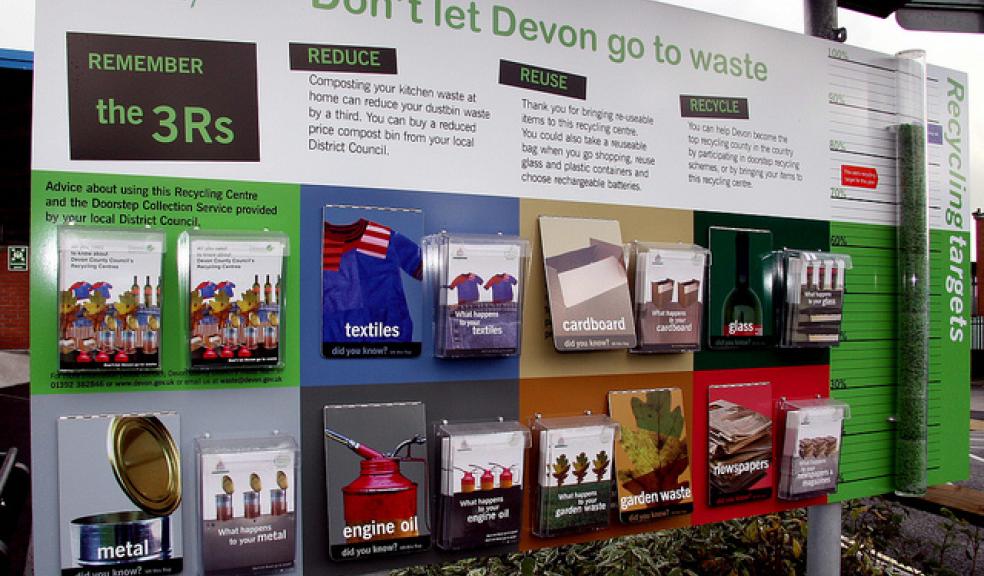
International Compost Awareness Week 2013 starts Monday 6 May
The twelfth annual International Compost Awareness Week will be celebrated from Monday 6 to Sunday 12 May 2013.
In Devon, acclaimed gardening professional and BBC Gardeners' World regular, Toby Buckland is supporting the Don't let Devon go to waste's campaign of getting people composting.
This is an opportunity to get involved and help Devon to recycle or compost 60% of its waste by 2014/15.
Compost Awareness Week aims to encourage more people to realise the benefits of home composting and the great results that can be achieved by using peat-free composts containing recycled material.
Throughout the week a variety of organisations will be encouraging people to give new composting activities a go.
However you choose to get involved, there are plenty of things that will not only help the environment, but also help your garden to grow greener. Here are just some of the things we could all try this Compost Awareness Week.
- New to composting? Why not give composting a go. Anyone with outside space can compost at home.
- Already a compost champion? Think about additional things you could compost, such as eggs shells, tea bags or even the contents from your vacuum cleaner.
- Don’t know what to do with your compost? Try using your homemade compost to enrich your borders or to give your potted plants and containers an extra boost.
- Ever tried peat-free compost? It’s made from recycled materials - and that’s good news for the environment because it helps to cut down the amount of organic waste that is sent to landfill.
- Fancy being a wormery wonder? Wormeries are ideal for people who don’t produce very much garden waste or have limited outside space. Small amounts of garden waste can go into a wormery, together with some cooked food scraps.
Home composting helps to keep garden and household waste out of landfill sites, and also produces nutritious compost, which can be used on flower beds and vegetable plots, for patio planters, hanging baskets and even window boxes.
Do your bit to reduce the amount of waste sent to landfill. Even for households that are already composting, new research has found that almost half of the food waste in their rubbish bins could have been composted. Yet many people still do not recognise how important and simple this is to do.
Peat-free compost is a greener choice, yet amateur gardeners still use a large proportion of the peat sold in the UK, mainly through multi-purpose compost. There are clear environmental reasons to consider choosing greener, peat free alternatives.
Peat-free compost containing recycled materials is a greener, kinder compost - and here’s why!
- It is made from recycled materials – which is good news for the environment because it cuts down the amount of organic waste that is sent to landfill.
- Peat-free compost containing recycled materials is made from garden waste which would have previously been sent to landfill sites but is now being recycled on a large scale commercially for use in peat-free products.
- It also gets blooming good results for your garden.
- And it won’t cost you the earth – buying peat-free does not always mean a more expensive option.
Visit the www.recycledevon.org website for all the information you need on composting at home and reduced price compost bins!
Other waste reduction and reuse tips:
- Use a reusable shopping bag
- Choose goods with less packaging
- Reduce food waste and save money by only buying what you need, cooking the right amount and using up leftovers
- Buy non-perishables in bulk
- Cut down on addressed junk mail by registering with the Mailing Preference Service at www.mpsonline.org.uk/mpsr or calling the information line on 0845 703 4599
- Cut down on unaddressed junk mail by writing to: Royal Mail, Door to Door, Business Customer Services Team, Kingsmead House, Oxpens Road, Oxford, OX1 1RX or e-mail optout@royalmail.com
- Drink tap water rather than buying bottled
- Subscribe to a vegetable box delivery scheme
- Buy groceries from local shops and or/farmers markets
- Take larger household items to your local Recycling Centre or Furniture Group
- Use rechargeable batteries
- Take unwanted clothing or smaller items to charity shops
- Use reusable nappies instead of disposables
- Help to reduce and reuse waste at work or at school
To recycle more of your waste you could:
- Check if you are recycling all the materials that are collected from your home
- Remember to recycle your glass jars such as jam, marmalade and pasta jars
- Check the bathroom for items that can be recycled too such as shampoo and shower gel bottles
- Remember you can take glass bottles, paper, cans and clothing to your nearest recycling bank
- Start or take part in a recycling scheme where you work or at school













